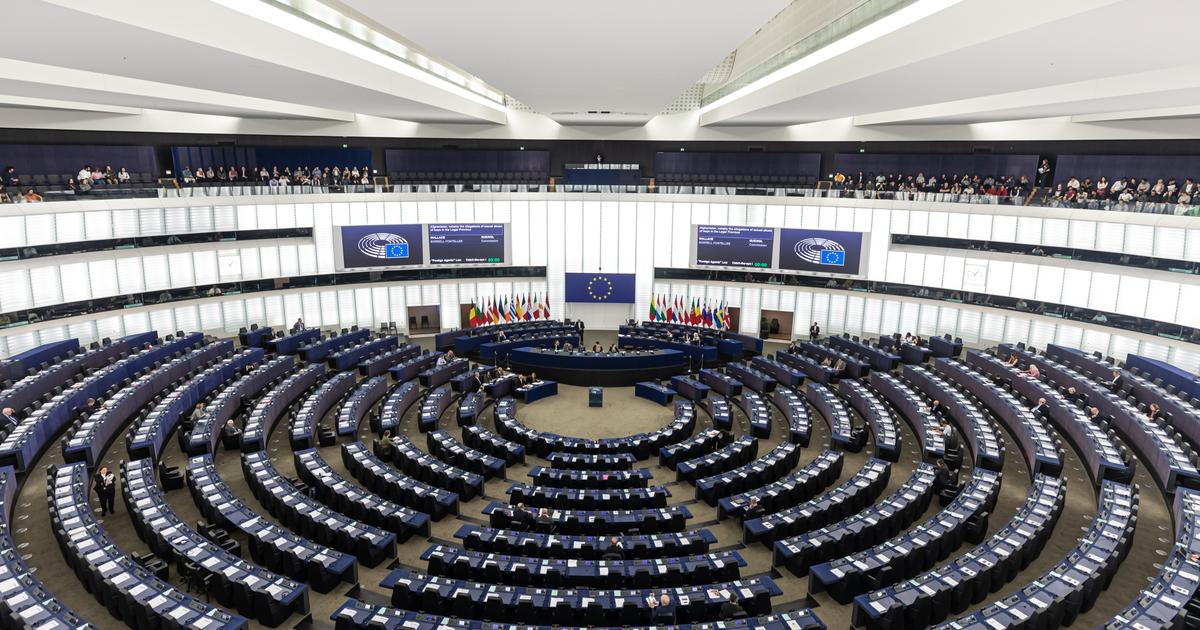
Despite criticism, the European Parliament ratifies a free trade agreement with New Zealand
This text, which enjoys widespread support from members of the European Parliament, aims to strengthen trade relations with the Union. It angers organizations concerned about the environmental consequences.
Brussels will be able to strengthen its trade relations with Wellington. MEPs on Tuesday voted largely in favor of a trade agreement between the European Union and New Zealand. supported by More than 520 elected officialsHowever, the text angers many organizations, which feel insulted by the consequences of this free trade agreement on the environment. This is in a context in which calls for transferring activities and production are increasing.
Concretely, the text aims to boost trade between the two regions, in particular by removing all tariffs affecting European exports to New Zealand when they enter into force, and 98.5% of European duties on New Zealand imports after seven years. In return, Brussels claims to have taken measures to protect domestic production: for example, New Zealand’s imports of “Sensitive agricultural products“, such as beef or dairy products will be manufactured.”Only in limited quantities“The Union’s prestigious wines, spirits and traditional products, such as feta, will be protected, the committee promised. The environment will also be taken into account, including”Enforceable obligations» In the face of the Paris Agreement. What do you do with this text?A standard in sustainable trade», Welcome Members of the European Parliament.
Currently, bilateral trade between the two parts of the world has reached about 9.1 billion euros in 2022, according to the Commission. The Union is New Zealand’s third largest trading partner. While Europe mainly imports agricultural products from Wellington, such as drinks, meat, fruit and vinegar, it also sends manufactured products, such as machinery, chemicals or transport equipment. Moreover, Twenty-Seven is the second largest foreign investor in the country, especially in the financial sector and wholesale and retail trade.
Despite this already solid base, trade could be significantly boosted through the agreement, Brussels believes. The Union’s bilateral exports are expected to increase by 31.7% in 2030, and GDP is expected to rise marginally, compared to a no-deal scenario, the executive forecast. In studying its impact. For its part, Wellington is expected to see its trade jump by 23.4% and its GDP by 0.5%. Growth in trade should increase wages, and European investment in New Zealand should increase.by more than 80%The Authority confirmed that consumers will benefit from it.
Read alsoThe European Union and New Zealand sign a free trade agreement
Regulatory concerns
The truth is that these assurances do not convince many organizations who are concerned about the effects of this agreement. If the Union asserts that the consequences for the environment will be limited, economist Maxime Combs will be more skeptical. The EU-New Zealand agreement is expected to impact climate change through its “impact on the volume of economic activity in the agricultural sector, especially the meat and dairy sectors” which generate high energy. Methane and nitrous oxide, two of the most potent greenhouse gases, in New Zealand, In addition to “expected additional trade flows between the EU and New Zealand that will lead to an increase in greenhouse gas emissions resulting from the transport of goods,” noted the project manager at Aitec.
Likewise, in a recent declaration, more than fifty organizations – including ATAC France, the CGT, and the French Nature Environment Association – called on members of the European Parliament not to ratify the agreement, which “does not deliver on its promises.” “The main beneficiaries on both sides are companies that often cause massive damage to the environment and climate», We apologize to the signatories for citing exporters of cars or chemicals. In addition, if investments can be increased significantly,The trade agreement does not provide for any specific measure to subject the planned liberalization of investments to sustainability criteria“, a “Big gap“, they add.
Some French elected officials in the European Parliament also spoke out against this text. For example, Manon Aubry denounced “Pure madness“And the”Environmental and social catastrophe“, when Emmanuel Morell, left, also accused the CEO of “[sacrifier] Our agriculture and food sovereignty to import milk and sheep produced 20 thousand kilometers away“.
It is expected to come into effect next year
For their part, supporters of this text want to be reassured. “In times of uncertainty, we must remain close to our allies, and this agreement will strengthen our already strong links with New Zealand», confirmed the new parliamentarian Karin Carlsbro, quoted from statement From his collection. “Today is a good day for the European Union […]. Together we promote rules-based global trade amid a global wave of protectionism and isolationismFor his part, his German counterpart from the European People’s Party, Daniel Caspary, announced.
Despite this vote, progress on this text, on which negotiations began more than five years ago, is not yet complete. Member states must still submit their formal agreement on Monday, and New Zealand must ratify it. It must then enter into force.By mid-2024», according to the European Parliament.

“Organizer. Social media geek. General communicator. Bacon scholar. Proud pop culture trailblazer.”
